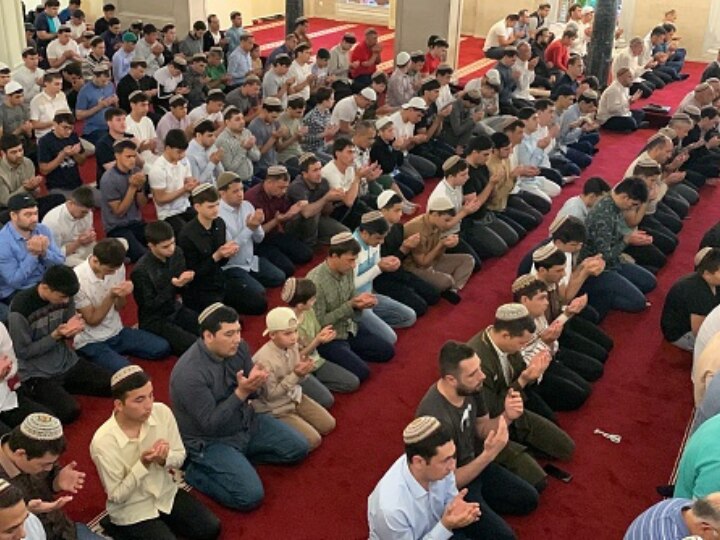United States President Joe Biden on Wednesday extended greetings on the occasion of Eid-al-Adha underlining the importance of selflessness, charity, and service to the less fortunate. “Jill and I send our best wishes to all those celebrating Eid al-Adha, the “great holiday” of Islam,” said the White House in a statement on Wednesday. For the first time this year, the White House will celebrate the festival with a gathering of Muslim community leaders, hosted by Vice President Kamala Harris and Second Gentleman Douglas Emhoff.
“As we gather with loved ones and engage in acts of worship, charity, and community service during this holy occasion, let us renew our commitment to the values that bind us together: compassion, empathy, and mutual respect. These principles are at the core of both Islam and the American spirit,” he added.
Eid-al-Adha also marks the culmination of the annual Hajj pilgrimage, one of the five pillars of Islam.
“The Hajj brings together people from every continent and corner of the globe, leaving their worldly possessions and wearing the simple, white Ihram garb in a spirit of equality,” he said.
US Secretary of State Antony Blinken also wished Muslims on the occasion. “For those who celebrate, Eid al-Adha is a powerful reminder of the communal obligation to take care of one another,” he said in a statement.
“We recognize that around the world, many Muslims this year are celebrating under grave humanitarian crises and political unrest. Tragically, some must celebrate alone, in hiding, or under repression. The United States is committed to standing up for the human rights of all people everywhere, including the right to freedom of religion or belief and freedom of expression,” he added.
Blinken also wished “Hajj Mabrook” to the pilgrims who took the annual pilgrimage this year.
Canadian Prime Minister Justin Trudeau issued a statement on Eid-al-Adha and wished on behalf of his family.
“One of the holiest dates in Islam, Eid al-Adha, also known as the Feast of Sacrifice, commemorates the story of the obedience and sacrifice of the Prophet Ibrahim.”
“On behalf of our family, Sophie and I wish all those celebrating a wonderful Eid al-Adha,” Trudeau said, adding “The federal government will continue to stand against Islamophobia and hatred in all its forms.”
Eid-al-Adha: History, Significance
The history of Eid-al-Adha dates back to the time of Prophet Ibrahim (Abraham) who was commanded by God in his dreams to sacrifice his beloved son Ismail (Ishmael) as a test of his faith and obedience. As Prophet Ibrahim, known for his unwavering devotion to God narrated the dream to his son, Ismail agreed to comply with God’s command.
As Prophet Ibrahim and Ismail prepared to fulfill God’s command, Satan tried dissuading them, but they continued on their mission resisting the temptations.
Just as Ismail was about to be sacrificed, he was replaced by a sheep that got slaughtered.
To mark Prophet Ibrahim’s absolute submission to God, Muslims around the world sacrifice goats, sheep, and other animals. The meat is distributed in three parts — one for the needy, another for self, and the last one for friends and relatives.


